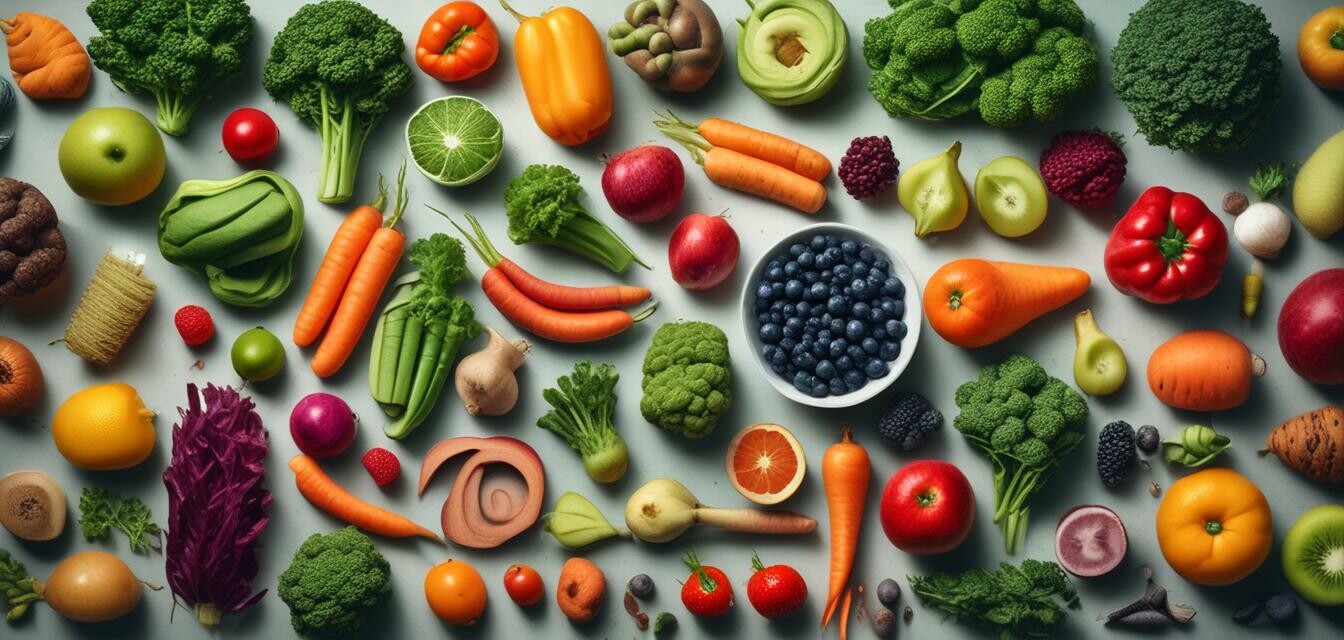
How Nutrition Impacts Your Vision
Key Takeaways
- Balanced nutrition is essential for maintaining optimal eye health.
- Specific vitamins and nutrients play crucial roles in vision improvement.
- A diet rich in antioxidants can help protect the eyes from damage.
- Regular intake of greens and colorful fruits can enhance eyesight.
- Stay informed on practical tips for improving vision through lifestyle changes.
Nutrition is more than just fuel for our bodies; it's equally vital for our eyes and overall vision health. The foods we consume can significantly impact our eyesight, influencing everything from eye strain to long-term health conditions. In this article, we'll explore how specific nutrients and vitamins contribute to better eye health and provide dietary suggestions for optimal vision.
The role of nutrients in eye health
A variety of nutrients contribute to optimal eye health. Understanding these can help you tailor your diet toward stronger vision. Below is a table summarizing key nutrients and their benefits:
| Nutrient | Benefits | Sources |
|---|---|---|
| Vitamin A | Essential for maintaining good vision and preventing night blindness. | Carrots, sweet potatoes, spinach, and apricots. |
| Vitamin C | An antioxidant that helps in preventing cataracts and supports healthy blood vessels in the eyes. | Citrus fruits, strawberries, bell peppers, and broccoli. |
| Vitamin E | May reduce the risk of age-related macular degeneration (AMD). | Nuts, seeds, avocados, and leafy greens. |
| Lutein & Zeaxanthin | Helps protect against blue light damage and supports overall eye health. | Kale, spinach, corn, and eggs. |
| Omega-3 Fatty Acids | Essential for retinal health and may help prevent dry eyes. | Fatty fish, flaxseeds, and walnuts. |
Foods to incorporate into your diet
To improve your vision and maintain eye health, consider incorporating the following foods into your meals:
- Dark leafy greens: Spinach and kale are packed with vitamins and antioxidants.
- Fish: Fatty fish like salmon and mackerel provide essential omega-3 fatty acids.
- Fruits: Berries, especially blueberries and oranges, are loaded with vitamin C and antioxidants.
- Nuts: Almonds and walnuts are rich in vitamin E and healthy fats.
- Carrots: Known for their Vitamin A content, they are a classic choice for eye health.
Benefits of hydration
Don't underestimate the importance of hydration. Drinking sufficient water can help maintain eye moisture and reduce the risk of dry eyes. Aim for at least 8 glasses a day, and remember to factor in fluid intake from other sources like herbal teas and fruits.
Tips for a balanced diet
Tips for beginners
- Plan meals around colorful vegetables and fruits.
- Swap out unhealthy snacks for nuts or fresh fruit.
- Try to include at least two servings of fish per week.
- Choose whole grains over processed options for added nutrients.
- Read food labels to be aware of vitamin contents.
The importance of regular check-ups
While nutrition greatly impacts vision, it’s vital to remember that regular eye check-ups are essential for maintaining eye health. Have your eyes examined periodically to catch any issues early on. For more tips on reducing eye strain, explore our Tips and Tricks section.
Final thoughts
Improving your vision naturally begins with the foods you eat. By focusing on a diet rich in vital nutrients, you can support your eye health and enhance your overall well-being. Remember that these dietary changes, along with a commitment to regular eye care, can pave the way to a clearer vision.
Pros of proper nutrition for eye health
- Might reduce the risk of eye diseases.
- Supports overall health and well-being.
- Enhances energy levels and vitality.
Cons of neglecting nutrition
- Increased risk of vision-related issues.
- Potential for inadequate nutrient intake leading to other health problems.
- May lead to eye fatigue and strain.